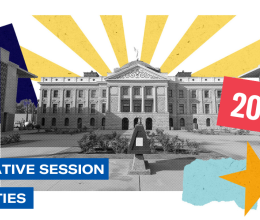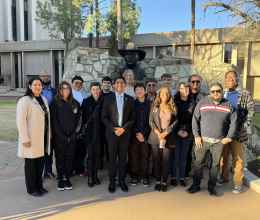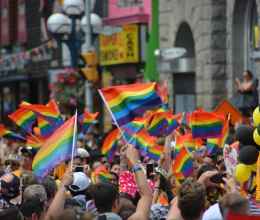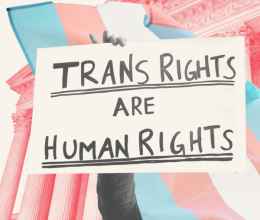
We've long advocated for creating safe, inclusive and equitable learning environments. For youth to thrive in schools and communities, they must feel socially, emotionally, and physically supported. That's why recent reports coming out of Norterra Canyon School give us cause for concern. According to some middle school students, they were told it is inappropriate to talk about sexual orientation at school. This is wrong and unlawful.
Supporting all students is crucial but it is especially important for queer youth. Queer youth are more likely to be bullied, struggle with depression and attempt suicide than straight students. The most recent Center for Disease Control and Prevention (CDC) data shows that in Arizona, 40% of students who identified as lesbian, gay or bisexual (LGB) reported being bullied on school, compared to 15% of straight students. 69% of LGB students reported feeling sad or hopeless compared to 31% of straight students and most troubling, 49% of LGB students seriously considered attempting suicide compared to 15% of straight students.
These are not just statistics. These are actual students who have felt unsupported and lonely and have been unable to find the support they need, whether it be in their home or in their classroom.
The behavior exhibited by school officials at Norterra is unacceptable. Telling a student they cannot talk about LGBT issues is not only unlawful, but harmful. It implies that there's something wrong about being gay, lesbian, bisexual or transgender. By not allowing students to express who they are and live their authentic self, school leaders are acting contributing to an unsafe environment and potentially denying students the only space they can feel comfortable being themselves in.
That's why its important students, parents and guardians know what rights they have in the classroom. Here we break it down:
- Gay-Straight Alliance Clubs.
Gay-Straight Alliances (GSAs) are student-organized school clubs that aim to create a safe, welcoming, and accepting school environment for all, regardless of sexual orientation or gender identity. GSAs help make schools safer for all students by providing support, educating others in their school about LGBTQ issues. Students work together to take on issues that affect all students, including harassment and discrimination based on sexual orientation, gender identity, and gender expression. If a public school permits any noncurricular clubs — clubs that aren’t directly related to classes taught in the school — then it must allow students to form a GSA or other LGBTQ-themed clubs, and the school can’t treat it differently from other noncurricular clubs.
- LGBT Censorship in School
Students have a right to be who they are and express themselves in public schools. The U.S. Supreme Court has made clear that students do not “shed their constitutional rights to freedom of speech or expression at the schoolhouse gates.” As long as it is not lewd and does not constitute a threat of violence, a student’s speech may be lawfully censored only if it would substantially disrupt the work of the school or interfere with the rights of others. And merely talking about being gay or transgender does not count as disrupting or interfering. Schools must ensure that its school policy permits students to express their support for the respect, equal treatment, and acceptance of LGBTQ people regardless of the conflicting personal views of faculty, staff, students, or parents.
- LGBT Student Privacy
It is unconstitutional for public schools to reveal a student's sexual orientation or gender identity to others, including their parents, without the student's consent. Even when a student appears to be open about their sexual orientation or gender identity at school, it remains the student’s right to limit the extent to which, and with whom, the information is shared. School officials may think they are doing the right thing by revealing students’ sexual orientation or gender identity to their parents. But doing so can have dramatic and unforeseen consequences.
According to a report by the Human Rights Campaign, 92% of LGBT youth say they hear negative messages about being LGBT. The top sources? School, the internet, and their peers. The way adults respond to LGBTQ adolescents can have a tremendous impact on their current and future mental and physical health. A supportive reaction can help adolescents cope and thrive. We encourage schools across Arizona to implement policies that respects the dignity of all students and respect the rights of students – by doing so, we can keep students healthy, safe and in school.
Find more information about LGBTQ youth and our schools resource library here. Have your rights been violated at school? File a complaint with us at intake.acluaz.org.



